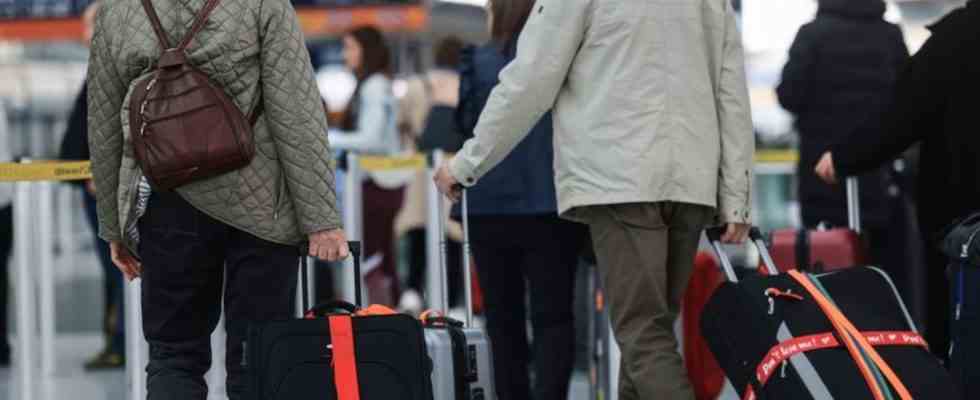air traffic
Elderly passengers: airports need to adapt
As society ages, the proportion of older passengers increases. Airports have to adapt to this. photo
©Oliver Berg/dpa
They have a lot of time, often enough money, but possibly special needs: how airports should adapt to older travelers.
According to an analysis, airports should adapt more to the needs of older travelers. SITA, an IT service provider in the aviation industry, sees this as one of twelve megatrends that will occupy the industry over the next ten years. “Elderly people often need something like services, help with route planning, luggage and mobility at the airport,” said Sumesh Patel, who deals with the trends and is responsible for the Asia-Pacific region at SITA, the German Press Agency . “The good news is that today’s older travelers are very comfortable with new technology and smartphones.”
Three problem areas
Patel names three problem areas: long distances, long waiting times and finding the way to the gate, for example. “Technology helps with that.” If the airport knew as much as possible from the airline about the passengers, their constitution and their preferences, information could be pushed to their smartphones in a targeted manner.
If the airport knows which passenger has trouble walking or needs regular injections of medication, these customers can be sent directly to their mobile phone, where the nearest first-aid room, a wheelchair-accessible toilet or the restaurant with the shortest access route is, for example. If the airline shared this information with departure, transfer and arrival airports, passengers could be taken care of throughout the journey. Trials with such applications are already underway, Patel said.
More older passengers
As society ages, the proportion of older passengers increases. Many people save travel plans for when they retire. While companies got to know and maintained virtual conferences during the pandemic, for example via zoom or teams, and consequently reduced business trips, older travelers are on the road again. In 2021, 36 percent of passengers worldwide were over 56 years old, compared to 25 percent in 2019, SITA reported, citing the airline association IATA.
As far as waiting is concerned, things are already being done, such as offering to check in and print boarding passes at home, Patel said. At Changi Airport in Singapore, passengers could book a security check slot to avoid long lines. More and more airports have service providers who pick up suitcases from the baggage carousel and take them to the hotel or home.
According to the Federal Statistical Office, the number of people aged 65 and over in Germany has risen from 12 million in 1991 to 18.4 million in 2021. According to estimates by the World Health Organization (WHO), the number of people over 60 worldwide will grow from around one billion in 2019 to 1.4 billion by 2030 and 2.1 billion in 2050.

